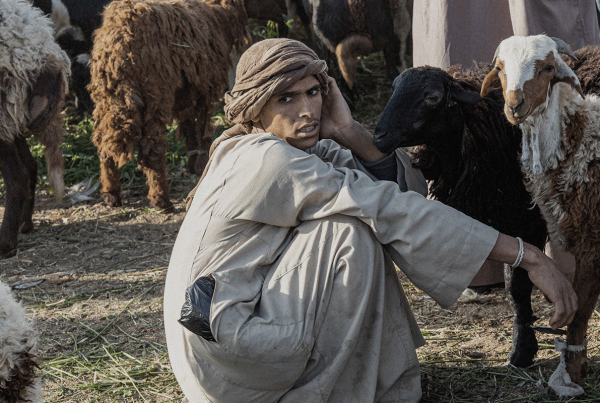“Are we willing to stop, listen, and believe a survivor? Are we willing to actually believe the absolutely insane, terrifying, horrifying things that they tell us happened to them? Will we stand with them when we hear those things? And then, will we help them?”
When Dina Unger said these words to me, she spoke with a heart on fire. The gravity of her passion pulled me towards the laptop that hosted our Zoom call. We were talking about how to provide care that does not retraumatize survivors of sex trafficking — the kind of care that Dina facilitates as a Case Manager, Director and Co-Founder of Even4one.
Gaps in human trafficking aftercare
Even4one is a website directory and referral system that focuses on acute advocacy and survivor/overcomer program placement. But it’s also much more. It was born out of a recognition that collaboration in aftercare is crucial in preventing retraumatization.
As a survivor herself, Dina often found herself informally helping friends who were trying to leave exploitation. The process of trying to find a program that fit their individual needs often involved countless rejections and dead-ends.
“There was one case where I went through over 40 different organizations,” Dina recalled.
That experience prompted Dina to spend time talking with aftercare providers across the United States and Canada, trying to determine what needs they had and what gaps they were seeing. In the process, she started identifying common threads.
“What I was seeing and confirming with other partners was the fact that it wasn’t OK for overcomers to keep telling their stories over and over again throughout that referral process,” Dina explained to me. “Going through it one, two, three, five, seven, 10 times? It’s devastating and destructive to have to relive that. We needed to create a process where they only have to tell their story one time.”

A survivor’s experience immediately after leaving exploitation
Quick access to appropriate care can make a world of difference in the profound vulnerability of a survivor’s first moments of freedom. Often, survivors lack basic identifying documents, as those documents may have been controlled by a trafficker. They likely don’t have food, money, or other basic necessities.
Law enforcement might provide a hotel room for a survivor to stay in for the first week after they’ve been removed from their trafficking situation. But what happens when that room runs out?
I asked Dina to tell me what it’s like for a survivor in those moments.
She said, “You are solely reliant on someone else, with zero resources at your disposal. And then what? How do you know what organizations are safe to go to? If you go on Google, how do you know that the person you’re reaching out to is not just going to sell you out again? And how do you battle your own fear, your own anxiety, and your own head that is screaming ‘now what?’ This is retraumatizing to somebody. The run button kicks in: ‘I’m better off where I was than trying to fight tooth and nail for my own freedom.’”
Even once a survivor is admitted into an aftercare program, trauma responses can kick in at moments that service providers might not expect or understand. Dina provided a simple example: shaving. Some programs don’t allow razors in their residential facilities for security reasons. But hearing that “no” can feel to a survivor like their control is being jeopardized again.
“The trauma response feels identical,” Dina said. “You feel like ‘you can’t have a razor’ is the same as ‘you can’t have food today.’”
In these confusing days, safety feels like danger. These spaces are where advocates can be steadying, empowering partners with survivors. The calm and empathetic presence of experts who know how to navigate the aftercare process alongside someone who is newly free can help smooth an intensely frightening and painful road.
Filling the gaps through collaboration
One of the most crucial ways to prevent retraumatization in the aftercare process is better collaboration. When service providers are connected to each other and operating in a mindset of mutual support rather than competition, survivors benefit the most.
“We’re all actually on the same team,” Dina told me. “We have to stop fighting for resources, realizing that when we do that, we create a larger problem for referrals. Are we big enough to admit that we might not offer what every person is looking for? Are we willing to look to resources outside of ourselves? Establishing true collaboration is just one of those big missing pieces within the anti-trafficking fight.”
This interdependence allows each organization and service provider to truly focus on their own area of expertise, which increases the overall quality of services available to survivors. It also opens up one of the most crucial components of trauma-informed care: choice. The crux of a sex trafficking survivor’s trauma is often the complete violation of their ability to choose what happens to them. Having a range of reliable options restores agency.
Technology is one way to support that collaboration. In the case of Even4one’s service provider database, a team of tech experts with past experience at the highest level of security for the U.S. government developed secure information storage systems. That provides an added level of safety for organizations and the individuals they serve.
Every service provider is also carefully vetted, with frequent check-ins to learn how their programs might be developing or changing. The vetting process includes getting a comprehensive list of what an organization offers and evaluating how equipped they are to offer trauma-informed care. The resulting resource is a list for anyone who wants to professionally or personally assist in connecting a survivor with resources.
The ache was evident in Dina’s voice as she said, “We need to do more than just send someone info@ email, or say ‘here’s the name of four organizations’ and wish them the best of luck in the next stage of their journey. That’s not enough. We need to actually be in there, getting our hands dirty, getting our hearts achy, fighting beside them and with them. They need an advocate.”

Survivor-centered care must be led by survivors
Ultimately, developing care that doesn’t retraumatize is always a process that must be led by survivors themselves. It’s impossible not to see how vital survivor leadership is when listening to Dina’s passion and insight, driven by her own lived experience and her deep personal faith.
“If you look at the statistics, most survivors that come out on the other end of healing become the biggest champions for the cause,” Dina explained. “They’re the ones that are there saying, like scripture says, comfort those with the comfort you’ve been given. They’re the ones saying, ‘this is how you can truly stand there for somebody, because this is how someone didn’t do it for me.’ They’re the ones that can give you some of the biggest insights into where the system failed, because it failed them.”
Organizations have the opportunity to benefit tremendously from that insight and from the innate intuition that survivors develop in the process of surviving exploitation. In order to come through the experience of being trafficked, survivors learn how to recognize manipulation tactics, transactional and money-driven mindsets, and a lack of authenticity. All of those skills are invaluable for organizations who want clarity on who to partner with.
Dina also freely admitted that it’s harder to truly be survivor-informed and survivor-led. Working with survivors means both trusting their expertise and holding space for their ongoing healing process, with all of the accommodations that might require. Developing care that doesn’t retraumatize costs time, resources, and the real emotional toll of entering survivors’ experiences with them.
“It is very easy to hold information in a database and to send an email to somebody and say ‘this is what I can do for you,’” she said. “It is very hard to put yourself across that screen and say ‘dear one, I am here. I get it. I am crying with you, and I’m not going anywhere.’”
Dina’s own experience has shaped everything about how she offers support, including even the words she uses, intentionally differentiating between “survivor” and “overcomer.”
“Who we were is a victim,” Dina explained to me. “Who we are when we come out of that trauma, when we’re rescued, is a survivor. But that’s not the end story. We get to survive, but we also get to overcome. We get to thrive, and we get to stand with joy and life and freedom. That is a basic human right. That is who we are.”
A thriving overcomer is exactly who Dina is.
“I came from that place of darkness. I know what it is. I stood in that place where life seemed impossible, where death seemed like the only out,” said Dina. “And Messiah saved my life. He was relentless with me. And how could I not be relentless for others? How do others not deserve that same relentlessness from us? I’m not just a victim. I’m not just a survivor. I am an overcomer through my king. And I want to see others find that same identity.”
How you can support survivors of human trafficking
Everyone has a part to play in providing trauma-informed support to survivors of human trafficking, whether you’re an organization, a service provider, or just a person with a passion for standing alongside the vulnerable. You can get involved through Even4one’s network at even4one.org/join-the-effort.
If you’d like to learn more about the trauma-informed aftercare that The Exodus Road is offering adult women survivors of human trafficking in Thailand, you can go to our Freedom Home page.
If you or someone in your life is a survivor of exploitation, you can visit Even4one’s database to explore resources.







